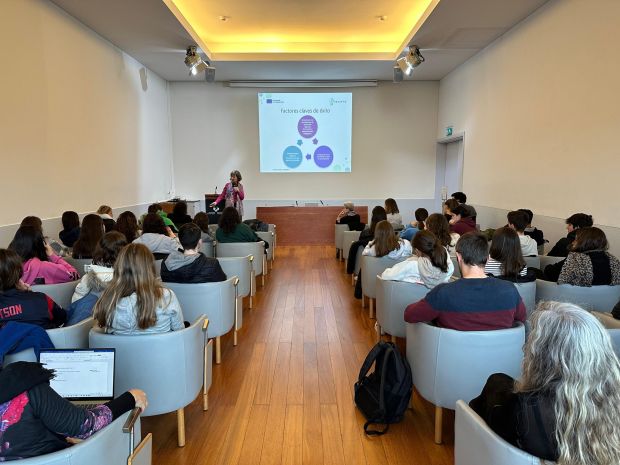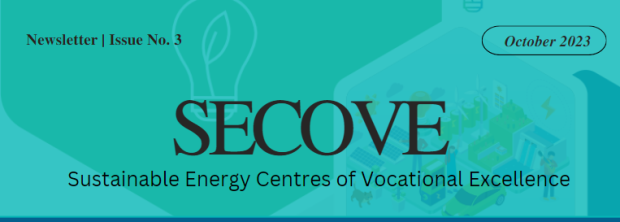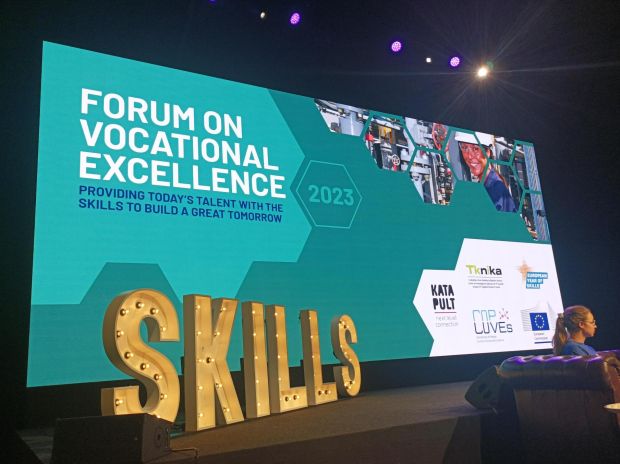Gender gap in VET and Sustainable Energy

Earlier this year saw the start of the research activity to make SECOVE inclusive and encouraging women in technical professions, which involved researchers from partner organizations in Italy, Spain, Greece, Slovakia and Portugal.
The aim of the research is to see how much VET education on sustainable energy is inclusive, especially for women, and to see how partners can increase the inclusiveness and attractiveness of VET through the operation of the CoVEs and the SECOVE tools.
In particular:
- To assess, promote and exchange practices, methods and governance schemes essential to guarantee an inclusive approach to VET by ensuring inclusion in accession, tutoring and follow up of VET paths also for the most disadvantaged groups;
- To monitor inclusiveness and attractiveness practices in VET providers;
- To improve VET attractiveness for girls and women, with specific reference to technical qualifications and specifically to those developed within the current initiative;
- To issue sensitive recommendations on the policy and governance level, as well as on the level of teachers and trainers’ competences and methods setting the basic conditions and requisites to grant equal access, treatment and support to all target groups accessing VET paths.
In each Country involved, the research was organized as follows:
– A desk part which collected statistics and qualitative data;
– A survey made up of questionnaires addressed to students and trainers in the STEM field with a particular focus on SECOVE issues;
– Two focus groups and/or interviews with experts, stakeholders, students and trainers. The result will be a European-wide report, a Country report with specific insights into what has emerged in each Country.
👉 Below some highlights:
ITALY
In Italy the gender gap in vocational education and training in STEM fields, including sustainable energy, remains a challenge. In fact, only about 20% of workers in STEM fields are women. They are underrepresented in these areas due to various factors, such as: women underrepresentation in STEM-related occupations, barriers in accessing to leadership positions and decision-making roles influencing organizations, gender stereotypes, lack of female role models, housework disparities, lack of work life balance.
SLOVAKIA
In Slovakia female students are not significantly underrepresented in the population of the secondary VET students group neither in the university students’ population, STEM study branches with some exceptions, as technical sciences (22,8% female students) and military & security sciences (33,5% female students). The study sees weak support for girls as the reasons for interest in these disciplines from both parents and teachers and the lack of role models for application in future life.
SPAIN
In Spain the gender gap in STEM disciplines is still a problem. Unfortunately, women continue to be underrepresented in STEM professions despite an increase in the number of women pursuing STEM degrees and careers. There is a significant gender gap in enrolment in primary, secondary, and tertiary education. For primary education, the gap is relatively small at 2.7%, but for secondary and tertiary education, the gaps are much larger at 9.3% and 16.7%, respectively.
PORTUGAL
In Portugal promoting equal opportunities and supporting the integration of vulnerable groups are main features of the system. Women enrolled in different education levels hasn’t evolved significantly between 1978 and 2016, except for the 11% increase in higher education. The share of women in all education levels is average 2-3% below 50%, but in 2016 the share of women enrolled (53%) was for the first time above 50%.
GREECE
In Greece, in research made by the European Institute of Gender Equality in 2019, it showed that men made 20% of people working in STEM occupations, while women made only 4%. STEM is becoming more and more a part of schools in primary, secondary and higher education. Programs, competitions, seminars about STEM for children, schools and educators are constantly being created in order to integrate STEM formally in education and in schools and not only as seminars but as courses.









